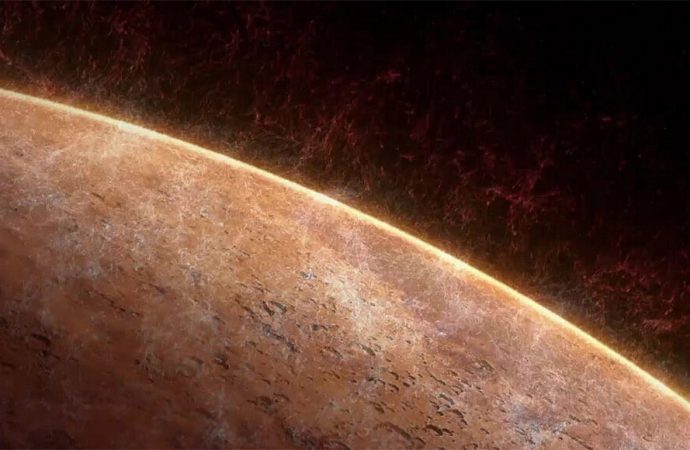The process, which takes four hours on average, helps explain why Mars loses water so fast
Source: Science News
Mars’ water is being skimmed off the top. NASA’s MAVEN spacecraft found water lofted into Mars’ upper atmosphere, where its hydrogen and oxygen atoms are ripped apart, scientists report in the Nov. 13 Science.
“This completely changes how we thought hydrogen, in particular, was being lost to space,” says planetary chemist Shane Stone of the University of Arizona in Tucson.
Mars’ surface was shaped by flowing water, but today the planet is an arid desert. Previously, scientists thought that Mars’ water was lost in a “slow and steady trickle,” as sunlight split water in the lower atmosphere and hydrogen gradually diffused upward, Stone says.
But MAVEN, which has been orbiting Mars since 2014, scooped up water molecules in Mars’ ionosphere, at altitudes of about 150 kilometers. That was surprising — previously the highest water had been seen was about 80 kilometers.
That high-up water varied in concentration as the seasons changed on Mars, with the peak in the southern summer, when seasonal dust storms are most frequent. During a global dust storm in 2018, water levels jumped even higher, suggesting dust storms lift water in a “sudden splash,” Stone says.
The top of Mars’ atmosphere is full of charged molecules that are primed for rapid chemical reactions, especially with water. So water up there is split apart quickly, on average lasting only four hours, leaving hydrogen atoms to float away. That process is 10 times faster than previously known ways for Mars to lose water, Stone and his colleagues calculated.
This process could account for Mars losing the equivalent of a 44-centimeter-deep global ocean in the past billion years, plus another 17-centimeter-deep ocean during each global dust storm, the team found. That can’t explain all of Mars’ water loss, but it’s a start.
Source: Science News

































Leave a Comment
You must be logged in to post a comment.